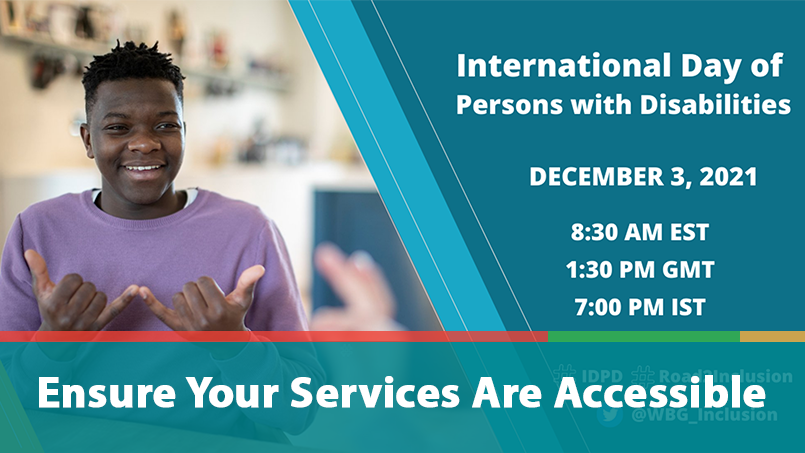
The experience of persons with a disability is varied across Papua New Guinea.
Service provision and supports are often inaccessible in rural areas and there remains a pervasive lack of understanding of how to provide services to persons living with a disability by service providers across the country.
Advocates are working to ensure access to services and information is improved and persons living with a disability are not left behind.
The National Youth with Disability Network is Papua New Guinea’s leading network supporting young persons with a disability.
Patrick Samar, the Secretary, is one of two members of the organisation who joined last week’s Youth Parliament, an event hosted by UNFPA with support from the EU-funded Spotlight Initiative.
Samar makes clear that it is the responsibility of service providers, not disabled persons, to ensure their services are accessible to all.
“We are persons with a disability. But this is not our disability. It’s our access,” he stated.
“Think of a woman who is deaf. How can she access information?” asks Patrick. “How can she access a courthouse? How can she communicate and tell her issues to the court?
“People with a disability have a voice but the issue is a lack of access and a lack of information,” he says. “Lack of information is key for us.”
As a person with an intellectual disability, Samar highlighted the vital need for information to be presented in a way that is not only accessible for people with hearing and visual impairment, but in clear, simple wording.
“An issue is understanding information,” he says. “With intellectual disabilities, you must give her or him time to understand information.
“I go to health services and they write down information. Next week, I go to buy the medicine and I can’t read it. The information has not come to my level.”
Though the main goal of the Spotlight Initiative is to end violence against women and girls, particular attention is paid to the intersectional disadvantages that individuals may face when accessing essential services.
Physical, geographical, financial, intellectual and linguistic barriers prevent many individuals, in Papua New Guinea and around the world, from exercising their rights to these services.
In Papua New Guinea, UNFPA is working to improve access to comprehensive sexual and reproductive health information and to strengthen understanding of disabled people’s sexual and reproductive rights.
“Too often a disability is seen as the individual’s problem,” said UNFPA Country Representative for UNFPA, Marielle Sander. “But it is the responsibility of anyone whose job it is to communicate information or deliver a service that they are adjusting to the needs of persons with a disability.
“UNFPA is committed to supporting persons with a disability in Papua New Guinea achieve their right to information and services.”
The Youth Parliament was an opportunity for emerging leaders to develop practical understandings of legislative procedures and review existing legal frameworks supporting young people, women and girls, and people with a disability in Papua New Guinea.
(World Bank Group picture)
